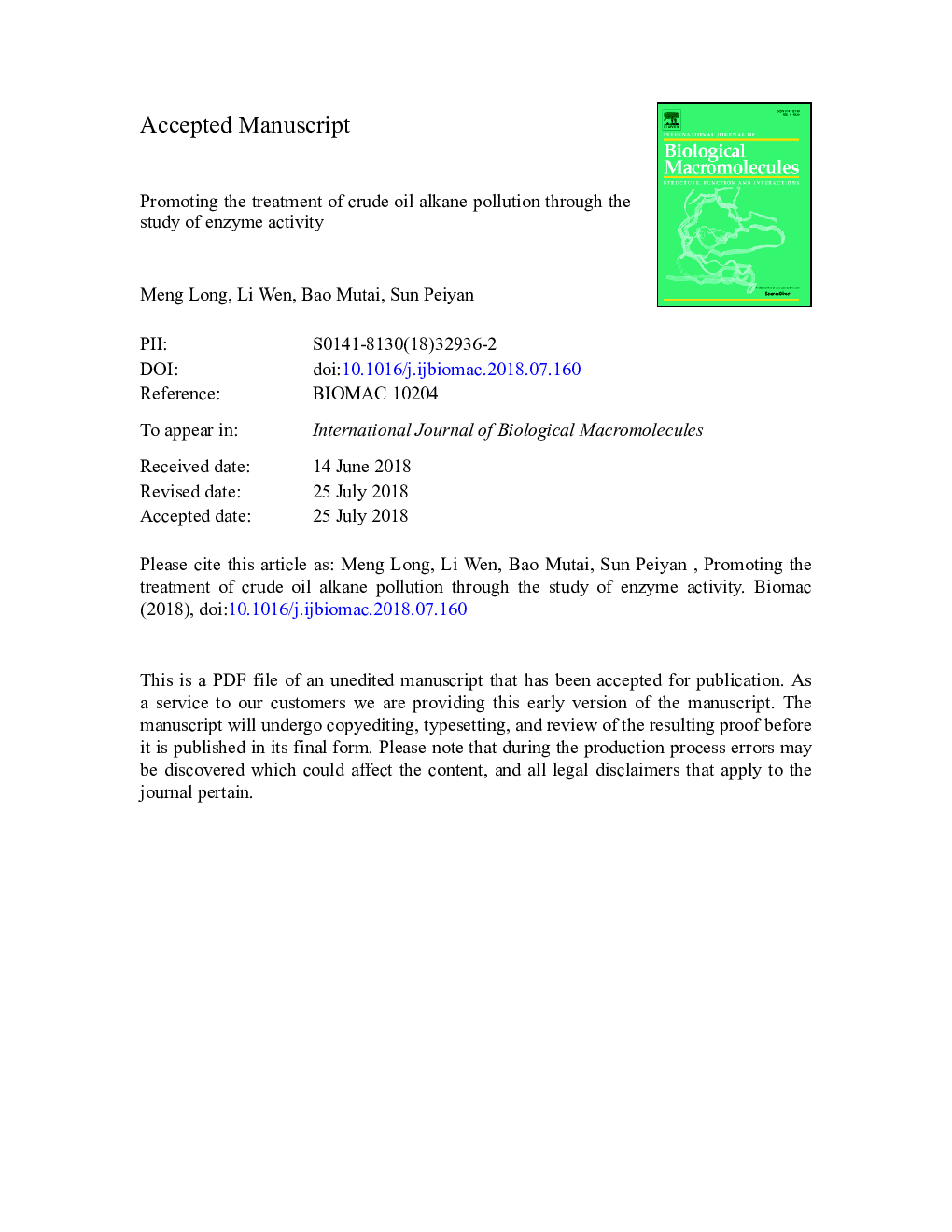| Article ID | Journal | Published Year | Pages | File Type |
|---|---|---|---|---|
| 8326832 | International Journal of Biological Macromolecules | 2018 | 24 Pages |
Abstract
Microbes appear to play a key role in bioremediation of petroleum hydrocarbons pollution and little attention has been paid to the enzyme activity in the process of alkane bioremediation. Oil field bacterium identified as Pseudomonas synxantha LSH-7â² was chosen as the tested strain. Periodically collected samples were analyzed by GC-FID (Gas Chromatography- Flame Ionization Detector) and RT-qPCR (Quantitative-Real-Time-PCR). GC-FID results showed this bacterial strain has great degradation ability on crude oil n-alkanes and RT-qPCR data indicated the differences between the three genes expression including AlkB-, Cytochromes P450-, and almA- related when grown on different-chain alkanes. Meanwhile, enzyme activity like alkane hydroxylase, alcohol dehydrogenase, dehydrogenase, protease, phosphatase, catalase and lipase were measured. Extracellular alkane hydroxylase was induced in a higher degree than intracellular in the early incubation time, alcohol dehydrogenase increased/decreased along with alkane hydroxylase, and the pH of the medium obviously decreased. Other enzymes were also described including dehydrogenase activity that reached a highest point that was slower than alcohol dehydrogenase, protease activity started multiplying after a period of culture while biomass was immediately increased, catalase activity dramatically enhanced in the presence of alkanes, phosphatase activity was closely linked to pH approximately but lipase activity was found to be moderate.
Keywords
Related Topics
Life Sciences
Biochemistry, Genetics and Molecular Biology
Biochemistry
Authors
Long Meng, Wen Li, Mutai Bao, Peiyan Sun,
